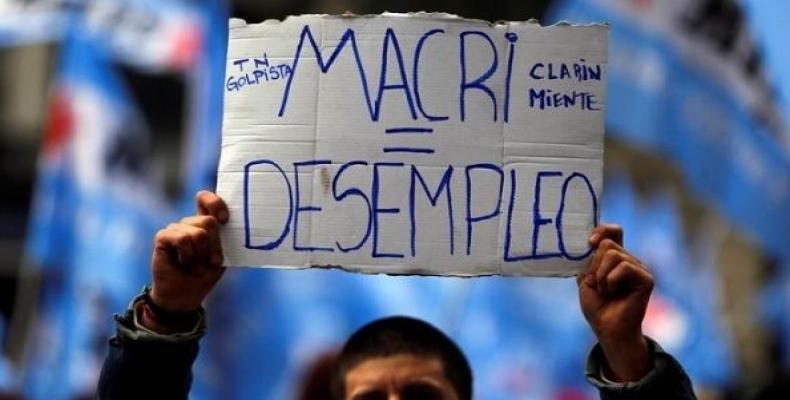Buenos Aires, August 20 (RHC)-- The freezing of oil and fuel prices for 90 days in Argentina generated a wave of criticism from the local oil industry, which considers that it was a measure taken without the consent of the actors involved and outside the law.
According to the first reactions to the decree issued by the government of Argentine President Mauricio Macri, the oil sector is willing to go to court to invalidate the measure.
As a result of this disagreement between the business sector and governments, the oil sector is scheduled to file a resource tomorrow to stop the decree.
On the other hand, and given the discontent generated by the measure, the Undersecretary of Hydrocarbons and Fuels, Carlos Casares, summoned the oil companies for this Tuesday, at the Secretary of Energy building, “in order to analyze the steps to follow for the normalization of prices".
The provinces of Neuquén and Río Negro, in southern Argentina, will also seek that Justice declare the unconstitutionality of the norm. Given rising inflation and rising Argentinian peso against the dollar, Macri announced last week a package of economic measures to give "relief" to 17 million workers and families.
In the list of these palliatives, a freeze on the price of gasoline was included for 90 days, but it turns out that this measure was not agreed with the oil sector, after both parties did not reach a consensus on the issue.
At first, the announcement generated confusion among the members of the energy sector and then anger because they considered that there were no reasons to issue that decree.
According to a press release from the Institute for Business Development of Argentina (IDEA), "there are no extraordinary circumstances required by the National Constitution for the use of a DNU (Decree of Need and Urgency)."
The CEO of Vista Oil & Gas, Gastón Remy, said that "it was a change in the rules of the game that were agreed upon" and that "there was no space for negotiation or dialogue" to analyze how to implement the announcement made by President Macri.
"Producers and industry understand that, given the economic scenario, measures should be taken, and it is not logical that the devaluation be transferred to the consumer. But the discussion is how to assume that burden along the value chain. This it has been done in the past in a negotiated manner, "said Remy.
The decree specifies that deliveries of crude oil made in the local market during the next 90 days must be invoiced and paid at the agreed price between the producing and refining companies as of August 9, 2019.


